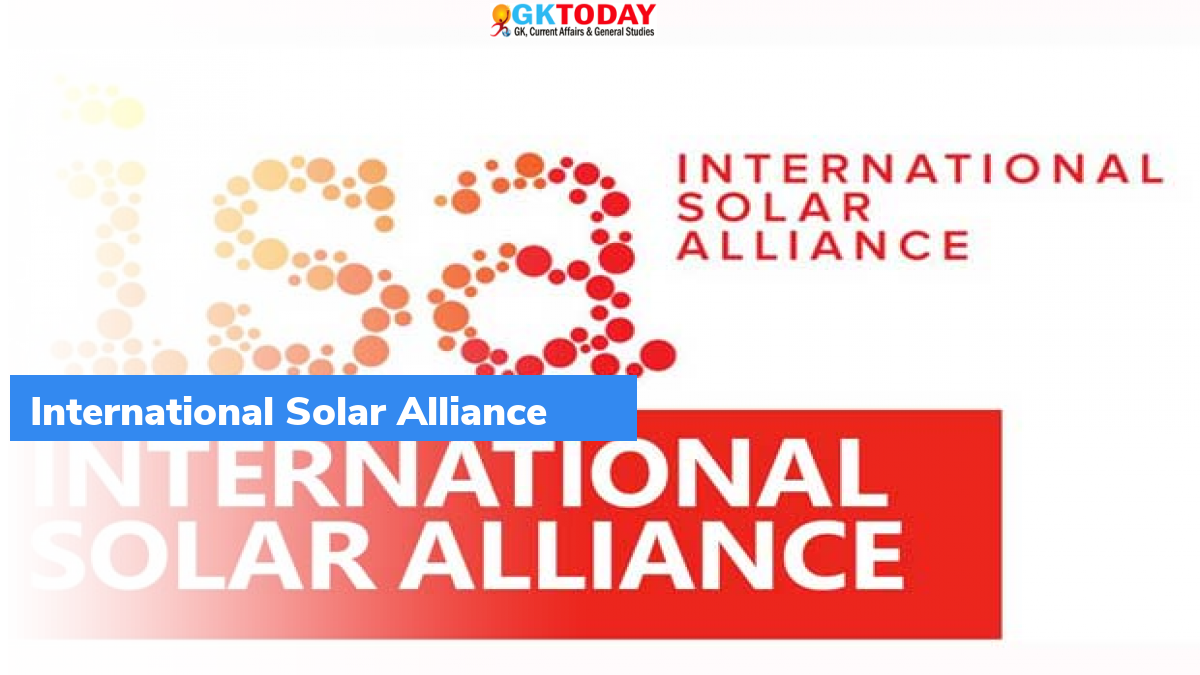International Solar Alliance
The International Solar Alliance (ISA) was launched by Prime Minister Narendra Modi along with the French President in 2015. It was launched at the United Nations Climate Change Conference held at Paris. The main objective of the alliance is to work efficiently on solar energy and reduce the dependence on fossil fuels. It is a treaty based inter-governmental organisation. The countries that are between the Tropic of Cancer and Tropic of Capricorn alone can join the alliance.
First ISA Assembly
It was organised by India along with the Indian Ocean Rim Association (IORA) in 2018 in New Delhi. The headquarters of ISA was established in National Institute for Solar Energy, Gurugram.
Second ISA Assembly
It was hosted by India in 2019. India was the President and France was the co-president of the Assembly. Around 81 countries had then signed ISA. STAR C (Solar Technology Application Resource Centre) project was reviewed during the assembly. ISA partnered with 40 organisations including Multilateral Development Banks, United Nations, Development Finance Institutions.
Third ISA Assembly
France committed 1.5 billion Euros to ISA.
The first project of Solar Risk Mitigation Initiative (SRMI) was launched by France and European Union. SRMI aims to finance more than 10 GW of solar projects. STAR C programme extended to small island countries. ISA CARES Fund was set up. It operates just like PM-CARES fund. Solar awards were conferred on several institutions and countries. The awards were as follows:
- Visvesvaraya Award: The award recognises countries that hold maximum solar floating capacity. They are African region, Asia Pacific region, Europe and Latin America and Caribbean region.
- The Kalpana Chawla Award: recognises contributions made by engineers and scientists
- Diwakar Award: recognises institutions and organizations that maximise the use of solar energy
Why was ISA launched?
The energy received from the sun in a day is more than sufficient to fulfil the energy needs of the entire world for the whole year. Mostly, the countries in the tropical are least developing. Therefore, solar power is critical for their energy security. The ISA aims to ensure access to reliable, affordable and sustainable energy for all. Also, it plans to increase the global share of solar energy by 2030. This is to be achieved by increasing the research towards clean energy. It includes fossil fuels as well. The ISA focuses on ecosystem, policy and integration.
Aim of ISA
- To reduce financial risks
- To increase energy cooperation
- To increase energy access
- To increase building capacity
Report released by ISA
The ISA releases Ease of Doing Solar Report. The first edition of the report was released in 2021. The report mentions India as one of the top solar energy markets. The other top solar energy markets are Saudi Arabia, Brazil and UAE. The potential solar energy markets are Ethiopia, Bangladesh, Zimbabwe and Mozambique. The key indicators used by the report to evaluate the countries are energy imperatives, financing ecosystem, infrastructure, market maturity, technical feasibility, policy enablers and macroeconomy.


